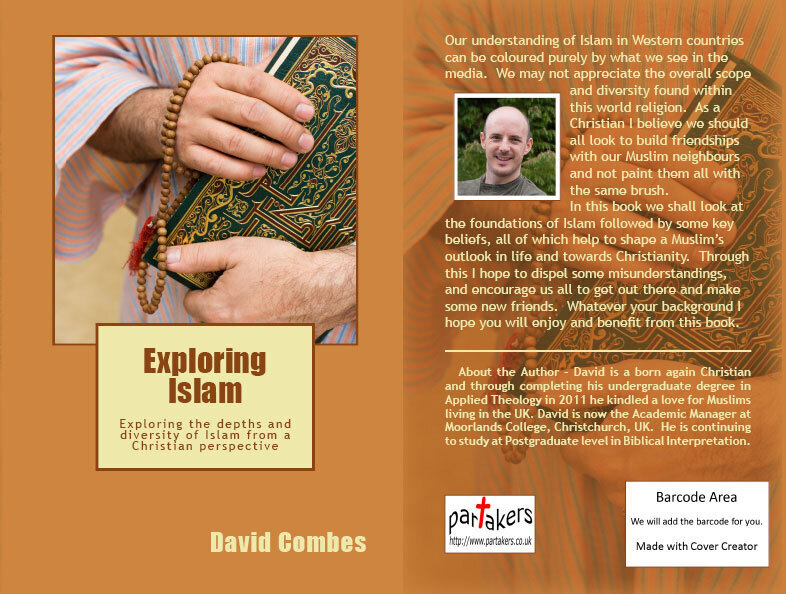
G’day and welcome to Partakers Christian Podcasts! Join us for uplifting Bible teaching, inspiring readings, heartfelt worship, powerful prayers, and fascinating church history. Whether you’re new to faith or growing deeper in your journey, we’re here to encourage and equip you. 🎧 Tune in, interact, and be inspired—wherever you are in the world.
Episodes

Tuesday Apr 27, 2021
Exploring Islam 08
Tuesday Apr 27, 2021
Tuesday Apr 27, 2021

Exploring Islam
The Islamic nature of Sin
What is sin?
There is similarity between Islam and Christianity in the definition of sin; in Islam it is in not fully practising sharia Law or believing in Allah and his prophets; for the Christian it is thinking or acting in contrary to God’s wishes. (For more about the Christian doctrine of sin, click here to see other resources on this site.)
However, this is where the two religions part company. Within Islam every person is naturally sinless when they are born, they only become sinful when their first sinful act is committed. People are capable of following all the necessary laws and being sin free on their own, all that they require is the proper instruction and a healthy fear of the afterlife in hell to motivate them.
Despite this, even Muhammad is said in the Qur’an to have sinned (Qur’an 48:2). People are forgetful and can fall prey to the temptations which Satan can cunningly whisper to them. This is in contrast to the Christian who believes that we are all born into sin before we have thought or done anything. This is the concept of ‘original sin’ found in Psalm 51:5 and means that every person is in needing of saving.
Different levels of sin
Within Islam there are different levels of sin derived mainly from the Hadith and are too complicated for us to go into here. The main point of the categories is to identify those actions which the Muslim can receive forgiveness for by doing repentance.
But in contrast there are a very small number which are not forgivable most notably that called shirk. Committing shirk is when a Muslim changes a religion to become a Christian, and thereby in Islamic understanding believes in more than one God as seen in the Trinity.
Although there are Qur’anic verses which suggest Allah would entertain forgiveness if they rescinded and returned to Islam, there are equally others which suggest it is only a one way road to condemnation. The concept of shirk is a major barrier in any Muslim’s mind in even entertaining conversation about other religions, let alone really committing to change. When a true conversion does happen it is common even in western countries not to go public for fear of reprisals.
Sin’s influence upon Allah and God
A final aspect of sin to mention is the effect it has upon Allah and God. In Islam Allah’s transcendence and unknowability is so complete that he is subsequently not impacted at all by humanity’s sinful acts. He is a god who has desires for humanity to live in an appropriate way, but there is no personal relationship or want for fellowship. Allah is most holy, that is pure and just and set apart. His will is his own unaffected by anyone or anything.
This is in great contrast to the Christian God whose nature is equally holy and transcendent, but He has an innate desire to individually meet and express his love for his creation. However, this is hampered by the presence of sin which would, unlike with Allah, be in conflict with God’s pure holiness. Therefore, for a Christian forgiveness is required to forge the loving relationship with God, whilst for the Muslim it is to avoid going to hell.
Right Mouse click to save this as an audio mp3 file

This now is available to buy as a book on Amazon :
UK/Europe - £3 - http://www.amazon.co.uk/Exploring-Islam-exploring-diversity-Christian/dp/1507774567/
USA - $7 - http://www.amazon.com/Exploring-Islam-exploring-diversity-Christian/dp/1507774567/
Click or tap on the appropriate link below to subscribe, share or download our iPhone App!![]()
![]()
![]()
![]()
![]()
![]()
![]()

No comments yet. Be the first to say something!